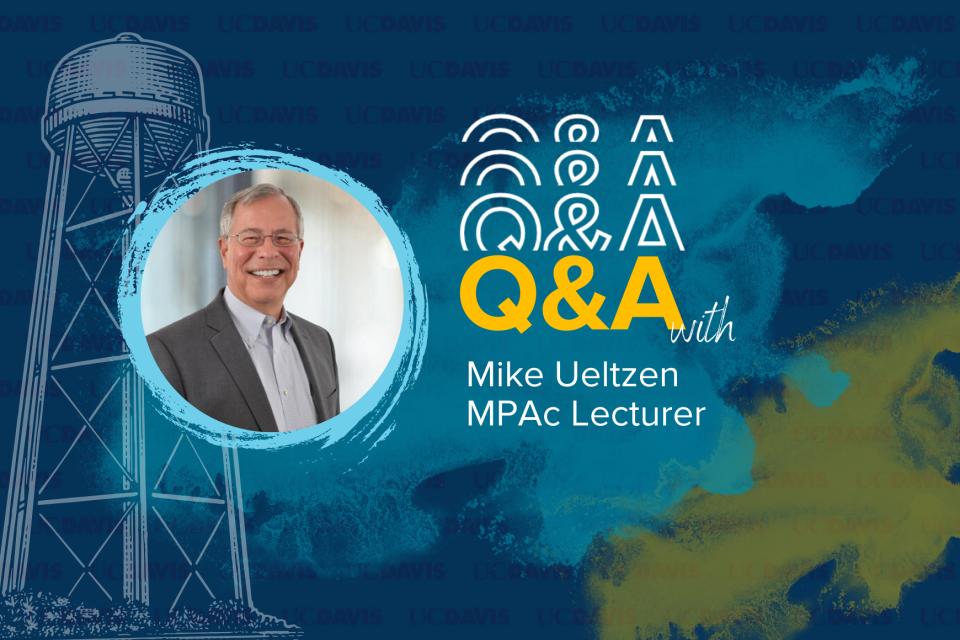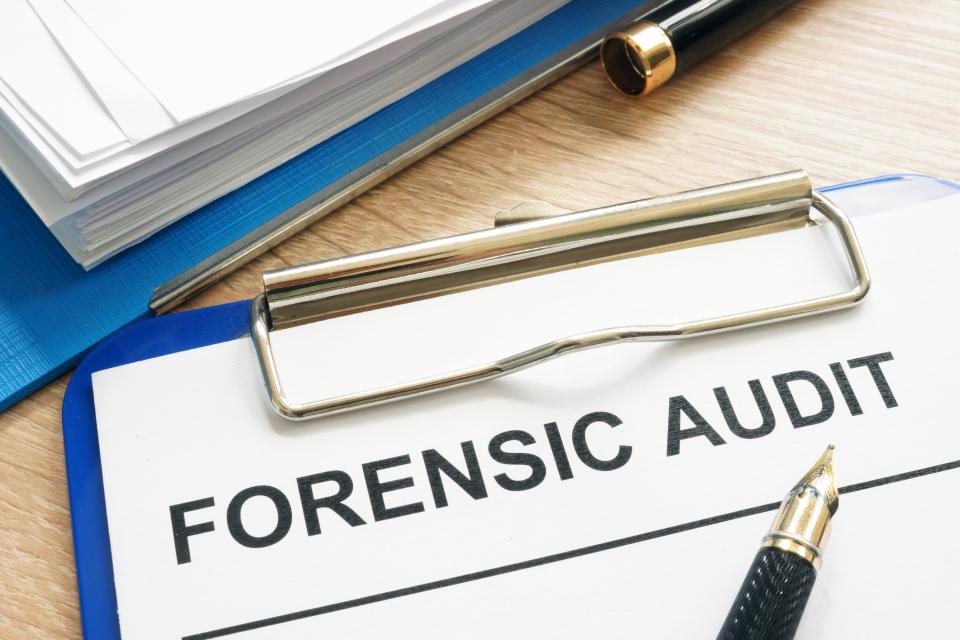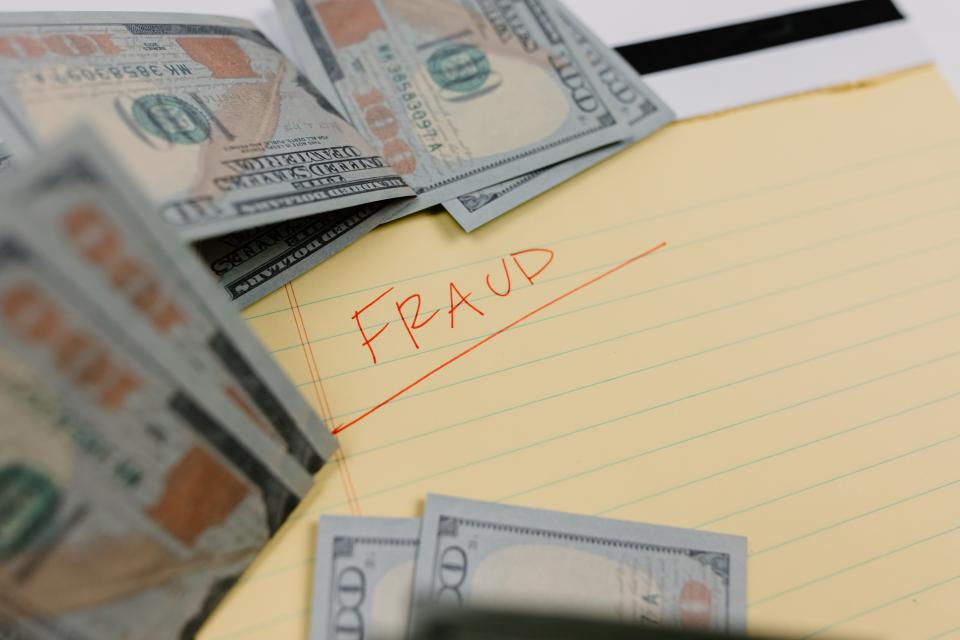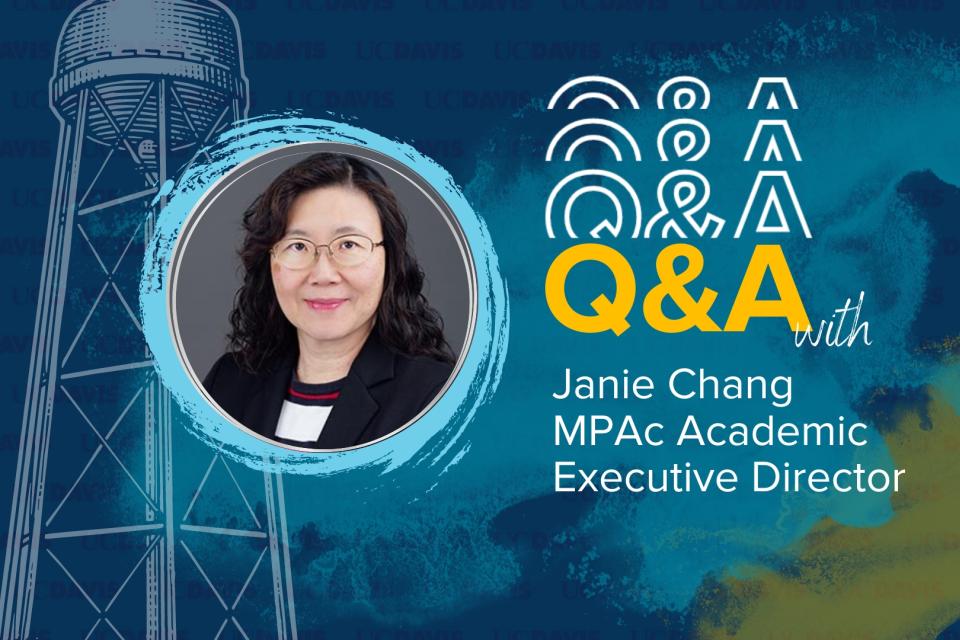Meet Michael Ueltzen: From Big 4 CPA to Expert Witness
How earning a CPA and developing communication skills may lead to forensic accounting

In the ever-evolving landscape of finance and accounting, students today face a unique challenge: to prepare themselves for a world where financial misconduct and fraud have become increasingly sophisticated.
As the lines between ethical financial practices and deceptive schemes blur, the demand for professionals who can navigate this complex terrain has never been higher. This is where forensic accounting steps into the spotlight.
Lecturer Mike Ueltzen, a veteran CPA with Big 4 experience, brings leading expertise in forensic accounting as a consultant and expert witness.
As a federal special master, court-appointed expert, referee, mediator, and arbitrator, Ueltzen has testified in both federal and state courts across the U.S. At UC Davis, he teaches accounting ethics to Master of Professional Accounting students, which is one of the select few programs in the country to offer a Forensic Accounting Certificate program.
This certification is a pathway to earning the AICPA Credential in Financial Forensics (CFF), requiring additional education, examination, and practical experience.
Recently, MPAc student Kyle Anderson caught up with Ueltzen to ask him about this expansive career and his role in shaping the next generation of forensic accountants. These are excerpts from their conversation.
How did you get involved in forensic accounting?
It seems that opportunities were available to me during my earlier career that enabled me to get involved in forensic accounting. I initially worked for a national CPA firm (now KPMG) for seven years; the experience I gained there was outstanding.
The next step with KPMG was a temporary three-year assignment in New York followed by a transfer to an office other than Sacramento. I did not want to move my family and I enjoyed the smaller town environment of Sacramento.
I was lucky as an opportunity to become a managing partner of a local firm came to my attention and I accepted the challenge. Once I started, the senior partner asked me if I was interested in what was then known as a litigation support engagement, now known as forensic accounting. I was a frustrated non-lawyer and I jumped at the opportunity. I loved the ability to investigate financial records, summarize them for the attorneys, and then present my findings to a judge and jury.
That initial exposure enabled me to form my own firm 20 years later and we grew into a 25-person firm that worked on some of the most complex accounting fraud cases across the United States.
What skills did you develop to be successful as a forensic accountant?
Again, my experience at KPMG was invaluable in my development as a good auditor and I had early exposure to large clients and client personnel. Once I found myself working more extensively in forensic accounting, I found it necessary to further develop my communication skills both written and oral.
In forensic accounting I found myself writing reports to counsel and the courts. Sometimes the reports were extensive, and I found myself constantly trying to take the complex accounting issues and make them simple to the reader.
Sometimes, that was only the beginning of the communications process, because I had to present the complex accounting problems and explain them to a judge and jury.
My oral presentation skills improved throughout my career, and I learned that pictures help you tell your story. Of equal importance was that I had to be prepared to withstand cross-examination by well-skilled opposing counsel. Cross-examination is not for the faint at heart, but I enjoyed my trial experiences (for the most part!).
As my career progressed, I found myself conducting more interviews, another skill set I had to develop. Eliciting information from friendly and adverse parties is not a class normally taught at college.
One of the things I have always enjoyed about forensic accounting is that it is a constant learning process. Not only did I continue to develop my communication skills, but I was also involved in learning about clients such as real estate developers, international GPS systems, manufacturing processes at a sawmill, government entities, and several Ponzi schemes.
Did you do all of this work on your own?
To become a successful forensic accountant, you must work with teams on all your cases.
First, you work with your own internal teams that may involve other accountants, forensic technologists, and other experts outside your expertise.
Next, you find yourself working with litigation counsel and their teams.
Finally, should the case go to trial, you sometimes work with jury consultants. Jury consultants provide incredible insight into a case. Issues so clear to you may not resonate with a jury; you learn to become somewhat of a psychologist.
If you cannot work as a team member, you will not be able to be successful in forensic accounting.
What was your educational background?
I did well in college and received a Bachelor of Science degree in accounting followed by a master’s in business administration. That educational experience enabled me to get a wonderful start in public accounting as an auditor, eventually leading to my forensic accounting career.
What advice would I have for someone interested in forensic accounting?
First, develop your skills as an accomplished accountant auditor and then always look for an opportunity to move to Forensic accounting. The larger firms have separate departments devoted to forensic accounting.
In some cases, you may have to make a change to another firm that is devoted to the practice of forensic accounting. If you think you might have an interest, let your firm know or start looking around the business community to see what firms have forensic accounting practices. Always look for the opportunity to explore.
What are all of those initials that follow your name?
The most important one is my license as a Certified Public Accountant (CPA). I also have a certificate granted by the American Institute of Certified Public Accountants as a person who is Certified in Financial Forensics (CFF). I am also a Certified Fraud Examiner (CFE), a certificate granted by the Association of Certified Fraud Examiners. Each certificate and the CPA license has unique educational, examination, and experience requirements.


